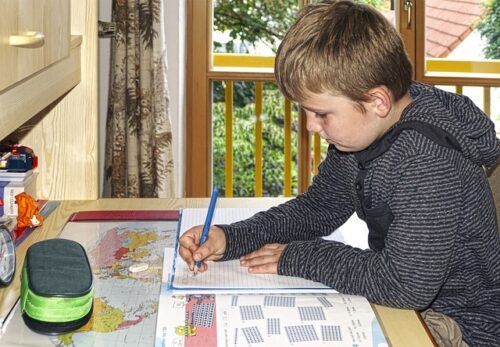Homeschooling experience can be an enjoyable endeavor for parents and kids, but it can also come with certain obstacles. Even when parents and kids occasionally want to sort things out, they usually wind up detesting the procedure and damaging their relationships. When homeschool parents and children approach homeschooling improperly, there are often too many arguments and misconceptions that can arise.

While homeschooling typically results in well-adjusted adults who contribute positively to society, there are occasions when the home environment setting can lead to parents becoming easily irritated and causing issues for their kids. Individuals must understand that there are better remedies or solutions than homeschooling in schools as they implement and contemplate this teaching strategy. This approach always has advantages and disadvantages. Indeed, there are still many issues with the global educational resources system, and the majority of parents, educators, and kids would agree that there are many of these issues with the way traditional schools are taught these days.
When things don’t go as planned, the majority of parents typically start to second-guess themselves. First and foremost, give up worrying! What parents or caregivers are going through is not unusual. Every parent who homeschools their kids passes through that stage. The homeschooling journey has difficulties compared to traditional schooling or public schooling. No one promised that it would be simple, even with the financial burden. To be able to help parents and kids with their homeschooling concerns, it is necessary to comprehend the challenges.
Loneliness And Isolation
If homeschoolers do not have adequate social connections during their time at homeschooling, they may experience feelings of loneliness and isolation. Living in a rural area, where it can be challenging to establish meaningful and lasting social ties, can also lead to isolation. While a few of these circumstances cannot be avoided, others can find ways to maintain them. As stated, however, children who grow up in socially isolated environments are more likely to experience health issues as adults during their own pace.
Moreover, research on social isolation has shown that a lack of interaction with others has a detrimental effect on the developmental processes of the brain. It has been demonstrated that socially isolated kids experience additional issues in addition to the physiological ones brought on by elevated stress levels. Lack of interaction with others might hinder the growth of the structure of the brain, according to studies on social isolation.

Ending Friendship And Social Connection
Being homeschooled means that children and parents will have to cut off from social interaction. Though sometimes the main purpose of the child’s learning style is to keep the kids away from emotional harm, bullying, harassment, and societal expectations, they still have to consider the aftermath of pulling kids outside the traditional learning experience. Both parents or teachers and the children will endure the need for social limitations, whether this could mean cutting off time with friends, not hanging out with too many people anymore, or just simply lessening interaction outside the premises of their homes.
Kids often struggle with ending friendships as homeschooling progresses. They start to get used to the idea that they can now live alone despite not having other individuals around. But kids are not the only ones struggling with this. As parents become more isolated, they become insensitive to their children’s social needs and demands. They ignore the concept that children need friends to accomplish better self-awareness and personality growth.
Homeschooling Becomes So Boring
Since there is less social connection with homeschooling, parents or homeschooling instructors typically force the student to continue even when the material is not being understood in a way that is beneficial. Because it can be too difficult to include something to do in the homeschooling course or local homeschooling groups, this ends up being a waste of time. Extremely disinterested students generally avoid assignments, put up less effort, lack self-control, and exhibit lower drive.
The majority of homeschooled students typically lament that the material isn’t as engaging as it formerly was. Some people don’t find the activities more challenging because they don’t perceive many benefits from discovering and learning new things. The fact that homeschooling offers fewer opportunities for social interaction than a traditional child’s education makes it challenging for some homeschooling families, parents, instructors, and children to form meaningful relationships.
Dealing With School Withdrawals
Youngsters who have just begun homeschooling and quit traditional school may experience a brief phenomenon known as “school withdrawal.” Higher levels of loneliness and emptiness are expected to be experienced by homeschooling children for an extended period of time. The withdrawals from school may occur and appear more sad than usual as public school students are quitting their social groups or joining local homeschooling groups and making new acquaintances in homeschooling circles.
Both parents, instructors, and homeschooled children may experience distinct difficulties as a result, particularly if they were previously accustomed to the idea of attending school and keeping social engagement. Withdrawals from school might result in excessive daydreaming during lessons or activities, becoming agitated or angry with homework or duties completed at home, and developing a dislike for the learning process in general.
Lacking Motivation
Maintaining motivation is difficult, and the absence of it to complete their task is arguably the most prevalent issue with homeschooling. Homeschoolers can struggle to stay motivated at home, particularly if their educational path or program involves an excessive amount of busy work or if it could be more isn’t effective for them in other ways. Furthermore, kids who feel too at ease in their environment have a tendency to disregard the importance of education. Because their parents, guardians, or caregivers frequently support their decisions and downplay the value of education, they are more likely to become aware of their freedom not to engage in any type of learning.
It is reasonable to be concerned about the lack of motivation experienced by homeschooled children since it might lead to problems because both parents and children may feel that there is little interest in or energy for the things they would and should ordinarily enjoy in life. Lack of motivation frequently includes negative self-perception and significantly reduces the energy and focus of parents and children.
Having No Rests Or Breaks
Parents who homeschool occasionally experience fatigue and stress because of the constant presence of young ones in their homes during and even after the lessons. There are moments when their schedule hasn’t been planned well enough to allow for some downtime. Parents who strive to over-commit their children’s education may become exhausted. Some are unable to take a break due to young children or strict schedules. Parents, balancing homeschooling, educating and assisting children in learning, also taking care of the house (not to mention the chore of budgeting and monitoring the food). There are many things to focus on.
However, not just parents face difficulties with homeschooling because there are no breaks or relaxation periods. Children also handle many tasks, and occasionally, they become overwhelmed by everything around them. In contrast to attending conventional educational institutions, children attending virtual schools are free from the distraction of dishwashing and tidying up after meals, allowing them to concentrate only on learning and socializing with instructors and classmates.

Losing The Essence Of Childhood
For guardians or parents who want to nurture their children in a secure atmosphere, particularly if they are susceptible to emotional and mental abuse, homeschooling is a terrific option. But as the process progresses, parents and kids will quickly understand that homeschooling may steal some of childhood’s magic. This is so children can develop a strong devotion to their society through peer socialization.
It’s not that homeschooling hinders kids’ development in general because it has certain advantages. But with time, children who experience isolation and little to no socialization—especially children their age—start to behave and think differently from what younger children do.
Dealing With Too High Expectations
Home education is a tool. When it is poorly used, there can be many problems with homeschooling, including too many expectations. The struggles that parents, teachers, and children will endure are when other individuals don’t understand the basic principle or the process. There are too many questions to be answered and a lot of what-ifs that need to be ignored.
Aside from that, children suffer more because society will expect more from them. And since most people don’t consider homeschooling the best option for kids’ optimum learning experience, they usually make a big deal out of the homeschooling learning process, which can make both parents and children feel bad about the home learning system.
Final Thoughts And Takeaways
Although graduates of homeschooling programs typically have well-rounded academic achievement, several possible issues are prevalent in numerous homeschool programs. By being mindful of these issues, you may prevent burnout and needless stress in your homeschool. It all depends on what the parents think, even if it’s about finding cost effective resources. The home school will be successful if the parents have positive opinions. However, if parents have harmful and distorted beliefs, the home school may as soon become concerning and distorted. Because other homeschooling families and parents’ opinions are projected onto their kids, if the parents have skewed opinions, the kids will frequently embrace those viewpoints. Will directly remarked on this trend, stating, “Homeschooling can be weird if one’s perspective is screwy.”
Homeschooling throughout high school presents certain difficulties, but the benefits far outweigh the drawbacks. There are support organizations for homeschoolers designed to assist you in successfully teaching your child at home. Maintain a network, seek guidance from seasoned home teachers or educators who have come before you, and utilize technology to streamline and elevate the quality of your kids’ learning experience and social skills.
